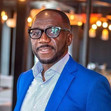Dunstan Ayodele Stober's Blog, page 2
November 15, 2023
Three Habits to Find Purpose and Meaning
“The only true competitor in an infinite game is yourself.”
“Do you see a man skilful in his work? He will stand before kings; he will not stand before obscure men.” — Prov 22:29
 Photo by Flash Dantz
Photo by Flash DantzWhat did you do today to make you better than you were yesterday? Are you improving?”
“Which would you rather achieve, success or excellence?”
On the face of it, success and excellence seemed the same to me. Hearing the question from the “Blink” of The Pursuit of Excellence by Ryan grabbed my attention.
“We are what we repeatedly do. Excellence, therefore, is not an act, but a habit.” — Aristotle.
Take a cue from the man considered the greatest marathon runner of all time — Eliud Kipchoge.
1) Focus on and respect the process.
“To win is not important. To be successful is not even important. How to plan and prepare is crucial.” — Eliud Kipchoge.
The goal is to be disciplined enough to work daily — read the books, work out in the gym and work on yourself. Daily discipline guarantees the desired results. Focusing and respecting the process also means accepting failure as part of growth. When we set and achieve our goals, we succeed. But we consistently guarantee excellence when we adopt and follow a system or process. Be patient.
2) Turn positive behaviours into habits.
“Without commitment, you’ll never start. But more importantly, without consistency, you’ll never finish.” — Denzel Washington.
Consistent practice of desirable behaviours turns into habits. For example, it is better to focus on being a writer than to set a goal of writing a book. You might lose the incentive to write after you succeed in publishing your first book. But, if you develop a daily writing habit, you will excel as a writer. Be sensitive in identifying the desirable behaviours that will help you become your best self. And to turn those behaviours into habits, you must start small, like writing a page daily. Know what triggers the behaviour and be consistent.
3) Remove obstacles from your environment.
I could trace every feeling of unfulfillment or satisfaction down to the one habit. When I started my weight loss journey, I had to make my house helper happy. I gave her everything sugary and starchy from my fridge and kitchen cabinet. To start my writing journey, I cancelled my cable TV subscription to make time for writing daily.
What is around you that is stopping you from turning positive behaviours into habits? Your environment fuels your habits.
We are not in competition with anything or anyone. To excel, we must focus on growth and doing what feels rewarding and fulfilling. Therefore, excellence is personal, intrinsic and internal. And because growth is continuous, to excel means to play the infinite game. To achieve this, you must accept and focus on what you can control, believe you can improve and learn new skills and be in the right environment with the right people.
If you can affirm daily that you are better than you were yesterday, then you are on your way to excellence, growth in your career and a fulfilled life. Excellence is a process of self-discovery and personal growth. Simon Sinek is right when he said that the only true competitor in an infinite game is yourself.
 Photo by Tom Hermans on Unsplash
Photo by Tom Hermans on UnsplashTwo (2) Book recommendations
These books show how habits, mindset and external factors can drive excellence in our career, business or passion pursuit.
a) Mindset: The New Psychology of Success. by Carol S. Dweck
Carol S Dweck introduces the concept of fixed and growth mindsets. She shares her thoughts and ideas, making a case that a growth mindset is a prerequisite for achieving excellence.
b) Outliers: The Story of Success. by Malcolm Gladwell
Talent, hard work or external circumstances? While most of us believe in success and excellence through hard work, Gladwell argues that our family, background and circumstances play a critical role in how we turn out. Read through Gladwell’s analyses of successful individuals to see how you can harness all through in our pursuit of excellence.
 Photo by Alex Azabache on Unsplash
Photo by Alex Azabache on UnsplashThree (3) Citations
Habits, commitments and consistency.
“The quality of a person’s life is in direct proportion to their commitment to excellence, regardless of their chosen field of endeavour.” — Vince Lombardi.
“Excellence is an art won by training and habituation. We do not act rightly because we have virtue or excellence, but rather, we have those because we have acted rightly. We are what we repeatedly do. Excellence, then, is not an act but a habit.” — Aristotle.
“Strive for continuous improvement, instead of perfection.” — Kim Collins
[image error]October 25, 2023
Career Lessons from My First Crack at Cricket
“94% of employees say taking time to learn is beneficial to their careers.”
“Live in harmony with one another. Do not be haughty but associate with the lowly. Never be wise in your own sight.” — Gal 6:7–8
 The most inexperienced and unskilled batsman on the grounds
The most inexperienced and unskilled batsman on the groundsI made a complete fool of myself, trying my hand at the most popular sport in South Asia. I dressed up like a pro batsman, ready to smack the ball out of the park. In my head, I was Virat Kohli. I decided to do this after being in Kabul for almost nine years.
As I sat on the stands that morning, I requested a quick crash course from my colleagues to help me understand what was happening on the grounds. Then, I had some quick batting practice with a kid behind the oval line. Armed with some idea of the rules of the game, I started barking instructions from the stands. Then, one play riled me up. The batsman could barely hit the ball anywhere close to the boundary from bowls that looked like a simple toss of the ball.
“What are you batting?” I yelled. “Even I can hit that out of the park for a six.” Then, I asked — “who is the best batsman in the group?” I suited up with my helmet, gloves, and shin pads and grabbed a bat. I asked the best batsman to give me another crash batting course. He efficiently taught me the correct head position, leg work and swing. “I got it. I am ready. Let’s do this.” “Make sure you capture my shot with the ball flying into the stands for a six.”
I would love to share that epic video with you. Unfortunately, no one captured it on camera because it never happened. My batting was nothing short of embarrassing. I missed a few balls tossed at me at 5 KMPH or less. But I managed to hit three of four a few metres away. I did not get a chance to get my moment of fame before we were rushed off the oval to make way for the next game.
Walking off the grounds, I saw parallels between this experience and the workplace. I shared with my colleagues the following lessons this short experience taught me.
1) Do not assume it is easy.
The slow bowls looked easy to bat, and I questioned the batsman’s commitment to the game. I learned firsthand that it is not as easy as it looked.
We should appreciate that everyone is trying their best at their jobs. And being able to empathise with others is a critical career skill.
2) Obtain the knowledge you need to do your job.
I asked about the rules of the game, then got the best batsman to teach me how to bat. Although I could not translate that limited knowledge into action, I understand the game better now.
To grow, we must acquire new and relevant skills to get us to where we want to be in our careers. We can do it through formal learning, self-education, and coaching.
3) Be Patient.
I couldn’t become an expert batsman after 15 minutes of coaching. That simply is not how growth works. I will need time to practice what I learned.
Just because we earned a CA does not mean we should immediately become the CFO. There is a path to the top that requires practical expertise and vast experience — all of which do not come overnight.
4) Plan your next move.
“Why am I missing these simple bowls?” I asked. “You need to look at the ball to anticipate where it will be before you swing,” was the reply from my coach of the day.
Like having a perfect hit in cricket, you need to plan and meticulously prepare for your next career move. Don’t just swing your career bat aimlessly like I did at cricket.
5) Look for opportunities to develop your skills.
I will never do better than my first outing if I do not make time to practice. I would have to accept embarrassing displays in the beginning. But with regular, consistent practice, I will get better.
We need to embrace being uncomfortable when trying a new career move. Ask for work that is outside your comfort zone. And be persistent at building a skill.
“If it was easy, everyone would do be doing it, and you wouldn’t have an opportunity.” — Bob Parsons.
Don’t look for the easy way or a shortcut to the top. You must be patient, invest in yourself and plan your career carefully. A former CEO once told me, “No one will take care of your career for you. You are responsible for your career growth.”
Two (2) Book recommendations
 Photo by Chris Lawton on Unsplash
Photo by Chris Lawton on UnsplashMy grandmother taught me the value of self-education. And I have been besties with books ever since. I will be reading these two of the twelve books Madeline Miles recommended in her article — “Build the career you want. These 12 books will show you how.”
a) The Long Game. by Dorie Clark
“Best for planning long-term career success.”
b) Expect to Win: 10 Proven Strategies for Thriving in the Workplace. by Carla A Harris
“Best for career growth and strategy.”
Three (3) Citations
 Photo by Maayan Nemanov on Unsplash
Photo by Maayan Nemanov on UnsplashThese three quotes will help to ignite your growth journey.
“The only way to do great work is to love what you do. If you haven’t found it yet, keep looking. Don’t settle.” — Steve Jobs.
“A mind that is stretched by new experiences can never go back to its old dimensions.” — Oliver Wendell Holmes, JR.
“Luck is what happens when preparation meets opportunity.” — Seneca.
[image error]August 23, 2023
Movement, Mood and Six Other Things to Win Each Day
Your results for the year depend on your daily habits
“Do not be tempted by evil things, which can do no good for you.” — Gal 6:7–8
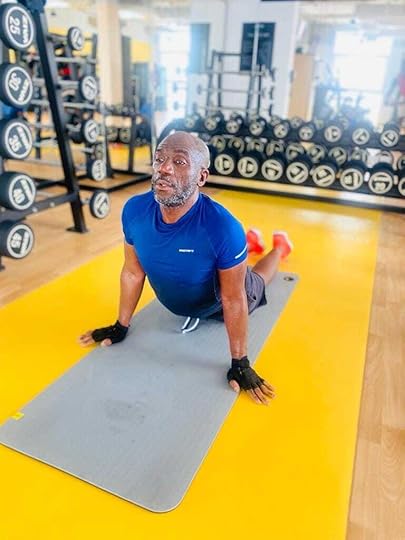 Photo by Calvins Cokoth
Photo by Calvins CokothIt happens to the best of us.
I promised myself I would leave the office in good time to work out at the gym and get some rest. I forced myself out of the office at 9:15 PM. Yesterday was not one of my best days.
Unplanned activities filled my day, I did tasks that were not a priority, and I did only 20% of the important tasks I had set out to do. I felt overwhelmed, dissatisfied, and anxious because I felt the day was a waste.
Have you ever felt like that? Do you have days that feel like a waste of 24 hours?
I realised that the feeling of a bad day started with me missing all of my morning routines. I missed my 45 minutes workout, did not journal, and did not read or listen to any audio learning material. “I will catch up in the evening after signing off early,” I encouraged myself that morning. Although I did work out late at night, I knew I was setting myself up for an undesirable cycle if I did not address the situation.
“Morning is an important time of day because how you spend your morning can often tell you what kind of day you are going to have.” — Lemony Snicket
So here I am writing this piece in the morning to remind myself of the eight daily habits I have learnt that help me have those super productive days. And these habits can help you too, if you make them non-negotiable.
1) Get Clarity
What you do in the morning determines how your day will turn out. And that depends on how you end the previous day. You can see the cycle.
To get clarity, plan your day the night before. And if you exercise in the morning, prepare your gym wears the night before.
2) Energise
My eldest daughter evangelises the “Pomodoro” technique as the best study habit — working in 25 minutes blocks. Although she has not won me over fully, I have found more energy to do effective work when I take walk breaks. I walk around my office every now and then. And I do not miss my 15-minute lunch break walks.
To avoid burnout, take breaks from deep work.
3) Productivity
I have moved from to-do lists to “priority lists.” I set my weekly priorities the weekend before the new week. And I put my daily priorities on the week’s list.
To be productive, work on the things that are important to you.
4) Help Others
Today’s world is filled with lots of touch points for sharing, helping or teaching others. I use my WhatsApp status, Instagram page and LinkedIn to post thoughts and ideas that will help others.
To feel great about your day, help, serve or teach someone.
5) Exercise
Forty-five minutes of exercise in the gym six days a week. I have a coach as an accountability partner or use one of the many free workout Apps. Seeing the consecutive tick marks every morning is my first win of the day. But it does not matter when you do, as long as you get active daily.
To feel lively, get physical movements and exercise daily. Cardio, strength or both.
6) Be Excited
“There are two ways to face the future. One way is with apprehension; the other is with anticipation.” — Jim Rohn
I choose the latter. I look forward to what is ahead, the things I can accomplish and the difference I can make.
To get in a good mood, be excited about the future.
7) Eat Healthy
I struggle with maintaining a healthy diet. But I try to avoid sugar, minimise carbs and eat fruits.
To have a healthy mind, keep a healthy body.
8) Get Enough Sleep
From jet lags to challenging time zones, I do not always get my fair share of eight hours of sleep daily. And when I do, I feel more alive and energetic the next day.
To maintain a healthy, get sufficient sleep.
According to Brendon Burchard, we should take our MEDS daily. Meditate, Exercise, Diet and Sleep.
My day has been great today, I moved for forty-five minutes in the gym, listened to audio lessons and wrote this piece that I hope will help you win your days.
Two (2) Book recommendations
 Photo by Chris Lawton on Unsplash
Photo by Chris Lawton on UnsplashThe answers to the above three questions lie in how much time and resources you commit to your development. Here are two books to help on your personal development journey.
a) The 7 Habits of Highly Effective People. by Stephen R Covey
This book is my all-time favourite for personal growth and development. It is timeless. It is my reference manual. Read, and reread it.
b) Limitless: Upgrade your brain, learn anything faster, and unlock your exceptional life. by Jim Kwik
Jim Kwik will show you how to get the most out of yourself. Limitless is a master learners’ guide. Unleash your mind, unstuck yourself and let go of beliefs that are limiting you. I love this book!
Three (3) Citations
 Photo by Maayan Nemanov on Unsplash
Photo by Maayan Nemanov on UnsplashHere are three Jim Rohn quotes to help you think about the benefit of a good daily routine.
“Motivation is what gets you started. Habit is what keeps you going.”
“Success is nothing more than a few simple disciplines practised every day.”
“We must all suffer one of two things: the pain of discipline or the pain of regret or disappointment.”
[image error]August 9, 2023
Three Questions I Answer That Can Help You Achieve Your Goals
What can you do, what can you read, and who could you ask?
“Ask, and it will be given to you; seek, and you will find; knock, and the door will be opened to you.” — Matt 7:7
 Photo by Katerina Holmes
Photo by Katerina Holmes“You need to work on this skill to help you grow in your career,” I told a colleague recently. He acknowledged my advice but said, in a resigned tone, — “I cannot be good in all areas.”
He was right. We all have our strengths and weaknesses.
What would be your approach? Would you focus on amplifying your strengths to overshadow your weaknesses? Or would you work on improving your weak areas?
The answer depends on what your goal is. I am a strong cyclist, an average runner and a weak swimmer. I would have to improve my swimming to compete in a triathlon event (swimming, cycling and running). But, I focus on building my cycling strength if my goal is to compete in cycling races only.
We face this dilemma in our careers as well.
My colleague continued, “I am good at solving technical problems and directing my team. But, when I am in meetings, I cannot communicate my ideas how I would like. So, I should focus on building my technical skills.”
Then he asked, “What is your advise?” To best illustrate my advice, I explained how I answered these three questions to help me map my path towards becoming a CFO.
1) What skills do I need to improve or learn to achieve my goal?
I first research what it takes to become a great CFO. What is the expertise of a great CFO, and how does a great CFO lead? What are the critical soft skills of the most successful CFO? Then, I formulated my development plan by looking at the gap between where I was and where I wanted to be.
With my solid accounting skills, I started learning about supply chain management, revenue assurance, and other “hard” skills to become a finance expert. And I identified communications and people management skills as my top two “soft” skills to improve.
I saw how my grandma taught herself until she knew enough to get a job at a printing press, where she worked for many years. So, I knew I could educate myself to be the CFO I dreamt of.
Do you know what you need to learn to get you to where you want to be?
2) What skills, knowledge or resources do I have now that can help me get to my goal?
I am a chartered accountant with extensive experience in telecoms accounting and finance roles. I could build on a few years of acting CFO experience. I am a fast learner, and the Internet is a treasure trove of learning resources I can use for my development journey.
I had what it takes to become an average CFO. But I wanted to be a great CFO, so I sought help.
What do you have that can serve as the foundation you can build your dream on?
3) Where do I need help, and who can help me?
When I changed jobs in 2014, I set out to find a CFO coach, even if I had to pay one. Luckily, my new CFO boss was the ideal avatar of the CFO I dream of becoming. And he agreed to coach me. Through my coach, I developed my communication skills, became a better presenter, learned stakeholder management and honed my leadership skills.
My coach became my mentor. And within a year of his mentorship, I landed my first CFO role.
I knew the areas I needed help with and found the right person to help.
Do you know in which areas you need help to reach your goals and who can help you?
Focusing on amplifying your strength or overcoming your weakness alone is a means to an end. And when you know the end, you can build a development plan, harness what you have and seek help where you need it.
It is not your strengths or weaknesses that matter; it is having a clear goal and finding the answers to the three questions that have helped me and can help you too.
Two (2) Book recommendations
 Photo by Tom Hermans on Unsplash
Photo by Tom Hermans on UnsplashThe answers to the above three questions lie in how much time and resources you commit to your development. Here are two books to help on your personal development journey.
a) The 7 Habits of Highly Effective People. by Stephen R Covey
This book is my all-time favourite for personal growth and development. It is timeless. It is my reference manual. Please read, and reread it.
b) Limitless: Upgrade your brain, learn anything faster, and unlock your exceptional life. by Jim Kwik
Jim Kwik will show you how to get the most out of yourself. Limitless is a master learners’ guide. Unleash your mind, unstuck yourself and let go of beliefs that are limiting you. I love this book!
Three (3) Citations
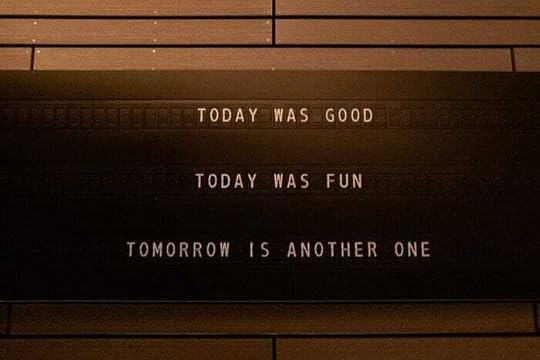 Photo by Nick Fewings on Unsplash
Photo by Nick Fewings on UnsplashI can listen to Jim Rohn’s talks for hours on end. Here are three of his classic quotes.
“If you are not willing to risk the unusual, you will have to settle for the ordinary.”
“Formal education will make you a living; self-education will make you a fortune.”
“It isn’t what the book costs; it’s what it will cost you if you don’t read it.”
[image error]July 25, 2023
“The Desire Model” — Four Things We All Need for Focus and Clarity
My most important lesson from a five-day transformation challenge
“Let your eyes look directly forward, and your gaze be straight before you.” — Prov 4:25
 Source: MS 365 stock photos
Source: MS 365 stock photosWhat is the magic number? Is there even a magic number? Some studies have suggested it takes 14 days, others 21 days to change a habit or form a new one.
Is it easier to stop an old habit or to form a new one? For example, is it easier to quit smoking than to start exercising in the morning?
What would you say if I told you, you could transform yourself in five days?
Impossible!
That was how I reacted when I saw Brendon Burchard’s Transformation Week course — a five-day personal development challenge. I signed up for it despite my scepticism. I figured it would be good to maintain a five-day streak even if I am not “transformed” at the end of day five. I decided to enjoy the journey rather than fuss over the destination.
Well, I missed the streak after day two. Life and work happen. But those two days were so insightful that I restarted the challenge. Thankfully, I completed the five days at the second time of asking. Through the challenges, I started journaling every evening instead of binging on Netflix. I developed concrete plans for exercising and reading in the mornings. In five days, I was replacing old, unproductive habits with new, productive ones. I started to feel alive again and more excited about the days ahead.
I completed the exercise the second time because my LinkedIn audience became my accountability partners. Daily journaling helped me to be more intentional about my days. I was back on track with my projects through the action plans I put together on the GrowthDay App.
But “The Desire Model” was the most impactful discovery from that five-day challenge. After some introspection, I agree with Brendon that we all need the following four things for better focus and clarity in the critical areas of our lives.
1) Aliveness
We want to feel alive, inspired and motivated each day. Hence, we must commit to deliberate, daily actions in search of that feeling. Going to the gym every morning makes me feel alive. Listening to audiobooks or reading inspires me to be a better business leader.
2) Deep connections
We all long to connect, at a deeper level, with family, friends and maybe colleagues. I realised that everyone, regardless of social status, wants to feel appreciated. I take time to appreciate the people close to me. I try to be more present with my kids.
3) Meaningful pursuits
What are we doing to help others? Pursuing interests outside our professional career to contribute to our communities or give meaning to others. These interests help us find our purpose. Writing about personal development is one of my meaningful pursuits. Coaching and mentoring others connect me to my purpose.
4) Growth
We study, work or start a business because we want to grow. After our first bachelor’s degree, we pursue an MBA, then a PhD. At first, all we want is a job. Then we want our first promotion, setting our sights on the C-suite. We launch a business, then we aim for the first 100 customers or subscribers, then the first 1000 and so on. All these fill us with a sense of progress and growth.
If you reflect on everything you do sincerely, you will find your reason in one of these four desires. And any feeling of being stuck, unhappy or frustrated may be because you are not fulfilling one or more of these desires.
GrowthDay’s five-day transformation challenge introduced me to frameworks that helped me start habits, like journaling, that make me feel alive, build deep connections, rekindle my passion and track my progress in all the key areas of my life.
You would be right in saying that it is impossible to transform your life in five days. Personal development is a way of life; you must strive for it daily. But I promise you this: you will kickstart, restart or revamp your personal development journey if you write down three things you would do daily to:
- Feel alive.
- Have deeper connections at home, work or with your friends.
- Add meaning to others.
- Grow in your career or business.
Your transformation journey starts now — go!
Two (2) Book recommendations
 Photo by Tom Hermans on Unsplash
Photo by Tom Hermans on UnsplashI discovered the GrowthDay community after reading one of Brendon Burchard’s books. It is only fitting to recommend that book and another from the same author.
a) The 6 Habits of Growth: Get Unstuck and Create the Life of Your Dreams. by Brendon Burchard
b) High Performance Habits: How Extraordinary People Become That Way. by Brendon Burchard
Three (3) Citations
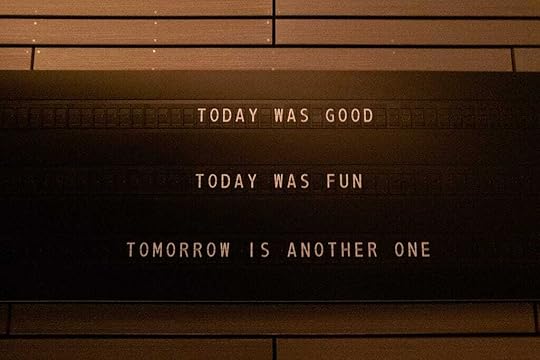 Photo by Nick Fewings on Unsplash
Photo by Nick Fewings on UnsplashReflect on these quotes as you pursue your growth and development this week and every day after that.
“Be more intentional about who you want to become. Have a vision beyond your current circumstances. Imagine your best future self, and start acting like that person today.” — Brendon Burchard.
“We are what we repeatedly do. Excellence, then, is not an act but a habit.” — Aristotle.
“Ever since I was a child, I have had this instinctive urge for expansion and growth. To me, the function and duty of a quality human being is the sincere and honest development of one’s potential.” — Bruce Lee.
[image error]July 4, 2023
A Compelling Strategy for Effective Leadership
Focus on things that matter to you, your people and your organisation
“Not domineering over those in your charge, but being examples to the flock.” — 1 Per 5:3
 Photo by PICHA Stock: https://www.pexels.com/photo/women-talking-to-each-other-3894383/
Photo by PICHA Stock: https://www.pexels.com/photo/women-talking-to-each-other-3894383/I take my learning and development seriously because, over the past 26 years, I have learnt that every step up in my career requires a higher standard of me. And shrinking training budgets have taught me not to leave my development in my employer’s hands.
So, after my recent promotion to Acting CEO, I enrolled on Brendon Burchard’s self-development program — GrowthDay. The program is a treasure trove of courses, models and resources for anyone looking to work on themselves. My competitive nature pulled me towards the challenges section on the platform. But more than that, I signed up for the 5-Day Transformation challenge because I am most effective when I face deadlines. The growth model, journalling prompts and goal-setting tool presented on Day 1 of the challenge provided made my decision to sign up after the 7-day trial a no-brainer. Journalling prompts from Day 2 posed a simple but growth-defining question.
“When it comes to your dream, what are the three major things you must learn in order to achieve it?”
To become an effective and successful CEO, I must improve my leadership skills. I must learn new leadership principles and practices by studying CEOs who model the leadership style I want to emulate. One book presented a compelling strategy I now adopt as my leadership blueprint.
Trey Taylor’s A CEO Only Does Three Things articulate a leadership approach that is practical and simple to understand and implement. As the title states, being an effective business leader is down to having the right focus on the three most important business drivers.
“Everything rises and falls with leadership.” John C Maxwell
1) Culture
In a 2021 Global Culture Survey of 3,200 leaders and employees worldwide by PwC, “67% of survey respondents said culture is more important than strategy or operations.
According to Taylor, every CEO must set his organisation’s Cultural Operating System (COS). As a business leader, I consciously exhibit behaviours and habits that foster respect, accountability, transparency and open communication.
In my new role, I make it a point to interview every new hire to see if they fit our company’s culture.
If you want to retain your best talent, improve your COS. Quantum Workplace’s research showed that disengaged employees are 3.8 times more likely to leave due to culture than engaged employees.
2) People
“It is good people who make good places.” — Anna Sewell.
I believe that our people are more important than the customer because it is our people who serve the customer and power the organisation. Hence it is important to recruit the right people who will fit the company’s culture. Hiring new people into your organisation is like introducing a new fish into your fish tank; the water in the tank represents your company’s culture. If the water is not suitable for the fish, it will die. And if the fish is not the right one to cohabit with the other fishes, it will eat or be eaten by them.
I introduced Taylor’s 4Cs recruitment criteria into our recruitment process — Culture, Capabilities, Compensation and Commitment. New hires who pass the 4Cs assessment are significantly more likely to be good hires.
The CEO is responsible for ensuring the company hires the right talents and placing them in fitting roles that will power the organisation to success.
3) Numbers
“If you don’t know your numbers, you don’t know your business.” — Marcus Lemon
This attribute is right up my alley, being a CFO. The CEO needs to know the right numbers or key performance indicators (KPIs) to measure, monitor and manage. Mastering this skill will help the CEO identify opportunities for growth, efficiency and improve profitability. The KPIs you place importance on must be relevant to your industry.
According to Taylor, knowing what KPIs to measure sets the agenda and puts the CEO in control of the business.
Whether you are leading a small team or a large organisation, to be an effective leader, you must set the standard of how your company operates, be responsible for hiring the right people and set the agenda by identifying what KPIs are important to your organisation.
Your strategy formula, as proposed by Trey Taylor, is Company = Culture x People x Focus.
Two (2) Book recommendations
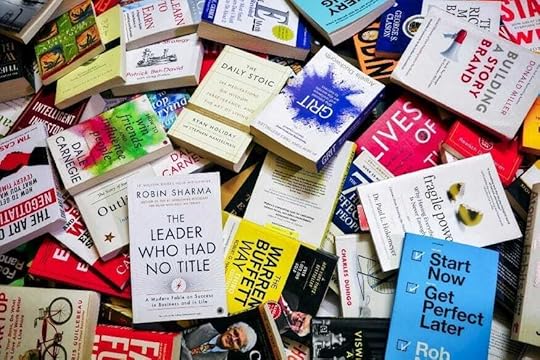 Photo by Shiromani Kant on Unsplash
Photo by Shiromani Kant on UnsplashThese two books are a must-read/listen for anyone interested in their development and becoming an effective leader.
a) A CEO Only Does Three Things: Finding Your Focus In The C-Suite. by Trey Taylor
“The first book to explain critical concepts of executive leadership in a way that we can learn and remember when our focus wavers. Taylor’s A CEO Only Does Three Things provides immediately actionable insights that CEOs can use today! I’d consider it a must-read for leaders in business strategy, corporate development and corporate alliances.” — Jim Blachek, CEO, Dynamic Benefit Solutions, Wilkes-Bare, Pennsylvania.
This book is a must-read for business leaders at all levels.
b) The 6 Habits of Growth: Get Unstuck and Create the Life of Your Dreams. by Brendon Burchard
Written in a conversational style, Burchard suggests motivation, focus, confidence, energy, purpose and leadership as the six habits that will help you achieve your dreams.
Three (3) Citations
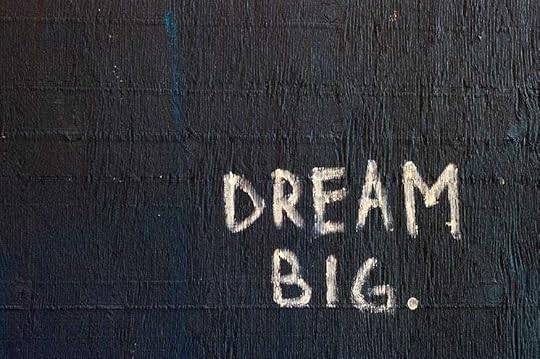 Photo by Randy Tarampi on Unsplash
Photo by Randy Tarampi on UnsplashHere are three quotes for you to ponder this week.
“Only by connecting with other people are we able to achieve our full potential. The trick is recognising and joining the right people.” — Trey Taylor
“A boss has a title; a leader has the people.” — Simon Sinek
“Everything rises and falls with leadership” — John C Maxwell
[image error]April 20, 2023
Machines Are Not Replacing Us Anytime Soon
Preparing for the fourth industrial revolution
“Not giving up meeting together, as some are in the habit of doing, but encouraging one another — and all the more as you see the Day approaching.” — Heb 10:25
 Photo by Pavel Danilyuk
Photo by Pavel DanilyukChatGPT is the latest in the long list of AI phenomena. It is all around us, from handheld devices to features in our cars and chatbots; AI dictates how we live, work and play.
When I started working in telecommunications over 20 years ago, having a 24-hour manned call centre service was a competitive advantage. Now, the emergence of chatbots has evened the customer service playing field while CFOs are smiling to the bank with the resulting cost efficiencies.
Yes, that is just one of many areas where machines are performing tasks that were once the sole preserve of us — humans. I was in awe at the sight of the “smart police station” in Dubai. A few months ago, I bought a sandwich I did not need so I could try my hands on the cashier-less, grab-and-go store in the Mall of the Emirates in Dubai. AI is here to stay and advancing at an exponential pace.
In 2016, the founder and executive chairman of the World Economic Forum, Klaus Schwab, dubbed this phenomenon “the fourth industrial revolution.”
“We stand on the brink of a technological revolution that will fundamentally alter the way we live, work, and relate to one another.”
Again, the WEF described the transformation of work in one of its recent reports, saying, “Nearly a third of the most important skillsets in 2025 will be comprised of technology skills not yet considered imperative to the job today.”
However, an extraordinary experience recently made me question the veracity of this prediction or at least the man-vs-machine debate.
“Regardless of technology or innovation, people are still people. And all the rules of humanity still apply.” — Simon Sinek’s Notes to Inspire.
COVID-19 forced us to embrace telecommuting, and Teams and Zoom meetings became commonplace. Online collaboration tools took a different level of significance in how we worked. And then, post-COVID, we questioned if we would ever go back to the traditional ways of working.
With three years of telecommuting experience in Dubai, Johannesburg and Freetown, I subscribed to the school of “Telecommuting is here to stay.” But, I had to rethink my position after a recent visit to my station in Kabul, Afghanistan.
No machine could replicate the warmth of the welcome and the energy I felt at every meeting. My driver’s broad smile and warm embrace were more than I could put into words. For five days, every morning, I took in the soothing smell of the welcome bouquet I received on the first day of my return. A colleague gave me a thoughtful ornament that touched my heart. The grocery store owner instantly recognised me and welcomed me into his store with a long hug no machine could give. He let me pay later as I did not have enough local currency.
My team and I accomplished two weeks’ work in five days because we could do some tasks faster in person than remotely. And there was more soul to our meetings. The impact of the human touch was evident.
But, watching BBC Click’s presenter Spencer Kelly reminded me of the debate when he said, “The phones are taking over, the robots are doing the cooking, and, well, humans are just sitting around.”
So, should we fear the future of AI in the workplace? I am excited about the future of work because machines and AI will complement the human factor to improve the value of work. We may argue that machines will no take over from humans because they lack emotions, do not have soft skills, and humans make machines work. But we will be better off learning how to work with AI and how the new wave of technology will make us work better and be more productive.
Here are the five ways I will be preparing to remain relevant in the “fourth industrial revolution that I think you should also consider:
1) Keep abreast with technological developments and understand their benefits
We often fear what we do not know or understand. Reading the below books is a good starting point for learning about AI, robots and automation.
2) Upskill
Develop skills through formal and self-paced learning required to develop strategic thinking skills that cannot be automated. We will need to be ready for the new and complex demands of the future workplace.
3) Embrace tools and technology that will increase productivity
Automating routine tasks will free up time to engage in more value-adding activities. For example, I encourage my team to automate bank reconciliation to save time for working capital planning and management.
4) Continuously improve EQ
So far, our ability to express emotions is our main difference from machines. Thus, developing the ability to recognise and manage will be critical to surviving the 21st-century workplace.
5) Prepare to lead with purpose
Leaders must prepare their teams and organisations by creating a culture of automation — finding opportunities to automate and transform the way we perform standard repetitive tasks.
According to McKinsey Global Institute’s James Manyika and Kevin Sneader, “There is work for everyone today, and there will be work for everyone tomorrow, even in a future with automation. Yet that work will be different, requiring new skills and a far greater adaptability of the workforce than we have seen.”
Let us prepare to face the future of AI with anticipation and excitement, not apprehension or fear.
Two (2) Book recommendations
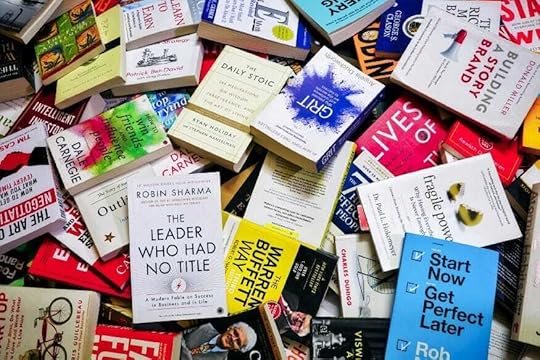 Photo by Shiromani Kant on Unsplash
Photo by Shiromani Kant on UnsplashThe best way to prepare for what’s coming is to learn about it. These two books from Forbes magazine’s 6 Best Books on Artificial Intelligence could be the best place to start.
a) A World Without Work: Technology, Automation and How We Should Respond. by Daniel Susskind
“The book focuses on how this changing technology might transform our relationship with work. It takes a close look at how AI could eliminate some jobs and warns that there is a real chance “technological unemployment” could occur.”
b) AI 2041: 10 Visions for Our Future by Chen Qiufan and Kai-Fu Lee
“It discusses everything from job reallocation to virtual companions and more via stories that highlight the impact AI could have. It warns of new risks that the technology will pose while reminding readers that humans are in charge of shaping these advances.”
Three (3) Citations
 Photo by Randy Tarampi on Unsplash
Photo by Randy Tarampi on UnsplashHere are three quotes to help us rethink the impact of AI on work.
“Humans need and want more time to interact with each other. I think AI coming about and replacing routine jobs is pushing us to do what we should be doing anyway: the creation of more humanistic service jobs.” — Kai-Fu Lee, Chairman and CEO, Sinovation Ventures
“Our research says that 50% of the activities that we pay people to do can be automated by adapting currently demonstrated technologies. We think it’ll take decades, but it will happen. So there is a role for business leaders to try to understand how to redeploy talent. It’s important to think about mass redeployment instead of mass unemployment. That’s the right problem to solve — Michael Chiu, Partner, McKinsey Global Institute
“The countries with the highest robot density have among the lowest unemployment rates. Technology and humans combined in the right way will drive prosperity” — Ulrich Spiesshofer, ex-CEO, ABB Ltd
[image error]March 1, 2023
The Counter-intuitive Principle of Growth
Lessons from an author’s self-help book
“Give, and it will be given to you. A good measure, pressed down, shaken together and running over, will be poured into your lap. For with the measure you use, it will be measured to you.” — Luke 6:38
 Photo by Kampus Production
Photo by Kampus ProductionIt is my first time, and I am excited!
I was honoured that my friend could trust me to write the foreword to her new book. But, I was concerned about how I would fit reading the book time into my calendar. I could read the book during my commute time. So, I said yes and picked up the manuscript from her.
That was one of my most rewarding and fulfilling decisions in the last four weeks.
Kim Vermaak’s upcoming authors’ self-help book is a page-turner from cover to cover. But not just for authors. Readers can apply the book’s tips, tactics and overall strategies to their career, business venture or artistic pursuit.
The book's theme is underpinned by a fundamental success principle—no spoiler from me. Look out for the book. But, I will tell you three principles I learnt from reviewing Kim’s manuscripts.
1) Take action
People do not realise their dreams because they fail to take action. To succeed in any endeavour, we must take focused, deliberate action. We must do something daily that brings us closer to our goal.
Kim underscored this principle with the “be, do, have” philosophy. First, we must be, in our minds, the person we want to be. Then we must do what it takes to succeed (take action). Only then can we have the success we seek.
2) Add value
Doing significant work leads to success. And we do significant work by adding value to others. According to Kim, adding value to others builds long-term relationships.
Giving value is the surefire way to receive value.
“Giving is better than receiving because giving starts the receiving process.” — Jim Rohn
3) Set realistic expectations
The key is to remain grounded. And we touched on this in Issue 3 of our newsletter.
Most disappointments stem from our lofty expectations. We must appreciate that building anything of significance takes time. It is vital to set credible, specific and realistic goals.
I loved Kim’s anecdote. “Your expectation should never be higher than your work ethic.” — Anonymous
Dare to dream, dream big but always back it up with deliberate and decisive action. Let those actions move you towards significant work.
And remember, be gentle with yourself.
Two (2) Book recommendations
 Photo by Shiromani Kant on Unsplash
Photo by Shiromani Kant on UnsplashThis week, I will give you one book to put on your wishlist.
a) Value To Others: 52 insights into business and personal success by Dr Chris Mason
I have just slotted this into my waiting list as I prepare to launch my next business venture. The first sentence in the book’s introduction on Amazon pulled me in. I believe it will be a worthwhile read.
“Many books purport to offer tips on how to thrive in the business world, but personal and business success really comes down to one thing: Value to Others.”
b) What Would A Successful Author Do? by Kim Vermaak
This book will be worth the wait because it is so much more than an author’s marketing blueprint.
Three (3) Citations
 Photo by Randy Tarampi on Unsplash
Photo by Randy Tarampi on UnsplashHere are three success quotes to feed your mind.
“People who add value to others do so intentionally. I say that because to add value, leaders must give of themselves and that rarely occurs by accident.” — John C Maxwell
“Knowing is not enough. You must take action.” — Tony Robbins
“Well done is better than well said.” — Benjamin Franklin
[image error]February 22, 2023
Tears of My Teens
How successful people turn trials into triumphs
“Blessed is the one who perseveres under trial because, having stood the test, that person will receive the crown of life…” — James 1:12
 Photo by Stephen Isaiah on Unsplash
Photo by Stephen Isaiah on UnsplashImagine you are going to spend two weeks with your wife and three teens after four months for the second time in over a year. How would you like to spend those two weeks?
For me, it was an opportunity for husband and daddy duties. I will let you figure out “husband” duties.
My “daddy” duties include school pickup, helping with homework, attending football practice and hanging out. My trip this month was busier than usual. We finally convinced our second daughter, Maya, to go to the gym. Daughter number one, Sophia, passed her driving test.
Yet, for the first time in 12 years, I travelled back with a heavy heart. Not that I am always happy to leave home. But, this time, I saw two of my babies bawl their eyes out in the face of rejection.
My wife and I have always encouraged our kids to pursue their dreams passionately.
We remind them of this:
“The future belongs to those who believe in the beauty of their dreams.” — Eleanor Roosevelt
Maya loves music, design and the arts. She excitedly signed up to audition for an upcoming high school musical. “I like the Lion King, dad.” I was happy to pick her up from school after her audition. I was sitting behind the wheel when she dropped her bags in the boot and came to sit in the front passenger seat.
“Good evening, daddy.” I looked at her with a grin as I enquired about the audition. She let it all out, and my heart sank. “I did not get any part, dad, not even in the ensemble,” she said with a shaking voice. I did my best to hold back my emotions while trying to encourage my baby girl. Was I wrong in telling her she should have the courage to pursue her dreams? Did I fail her by not preparing her to face rejection? Should I tell her to let it go, or should I tell her to keep trying? The crying had downgraded to sobs by the time we got home 30 minutes later. But I knew it was time to bring my coaching skills home. I planned to have a follow-up chat with her two days later when she would have a better frame of mind.
A few days later, a sports talk show was airing an interview with the CEO of David’s new football club as I drove into our garage. I called for David to come and listen with me in the car. After a few minutes of no response, I rushed upstairs to find out what was the strange sound coming from his room. I opened his bathroom door to see him still in his football gear. The white socks were dark brown, and his shorts were covered in mud from playing in the rain. But my boy was visibly shaking, crying his eyes out. The cry was so heavy he could not put two words together. When he could finally string a sentence, he told me the coach might cut him out of the team for a tournament over the weekend. I hugged him until he calmed down. Then took him for a drive and a chat. He got himself together and did practice the next day. But I could see he was not his usual jolly self. I asked him why he thought he was struggling with his new team. “My former teammates trusted me.” I was speechless for a few minutes. Then we talked about ways he can earn his new teammates’ trust. But that was not the end of it.
I went to see a match the morning of the day I was travelling back to Dubai. Under a pouring rain and a waterlogged pitch, his team lost 2–1. Although he scored his team’s only goal, he was crushed and gutted. Not because his team were knocked out but because he felt he was responsible for their loss.
The images of Maya crying while I drove her home, of David crying in his bathroom and seeing him almost losing his confidence left me with a very heavy heart. I could not have a minute of shuteye from about 7 PM when the flight left Johannesburg until eight hours later when we touched down at Dubai International.
Did I say enough to help Maya and David get over their disappointments? How can I help them develop the mental strength to rediscover their love for what they do? As their father, I want to shield them from the pain. But I need them to learn that:
- Failure and rejection are part of the growth process.
- Nothing in life worth pursuing would be easy; and
- We cannot quit at the first sign of risk, resistance or rejection.
They need to learn how to regulate their emotions, manage their thoughts and remain positive no matter the challenges they may be facing. They need to be mentally strong.
And if you are going through any situation like Maya and David, the following tips will help you develop the mental strength to be more resilient.
1) Do not stop believing in yourself
The trait is foundational to success. We will fail the day we begin to doubt ourselves. I over-emphasised this point to Maya and David, encouraging you to make it your most important value. I told David he would start scoring goals again when he regains his self-belief.
2) Maintain control
Be in control of your thoughts, feelings and emotions at all times. No person or situation should make you surrender or lose control.
3) Embrace change
Change is an integral part of growth. Learn to adapt to new environments, new rules and new demands. Accepting change helps us to step out of our comfort zone to where growth happens. Do not fear the unknown; embrace the adventure. Maya loves public speaking, and stepping into acting requires change which she must accept.
4) Accept failure as part of the process
I reminded David about how the high school basketball coach kicked Michael Jordan out of the team. And I reminded Maya of how producers told Ophrah Winfrey that she was not fit for TV. And I reminded them of many rejections J. K. Rowling endured before breaking through with Harry Porter. Everyone who has done something great had to face failure and rejection. A person with a growth mindset moves forward after every failure.
5) Don’t dwell on the past
We should not dwell on past successes. And we should not use past failures or mistakes to beat ourselves up. Past failures should be lessons, and past successes should build confidence. But dwelling on the past can impair our vision of the future.
6) Prepare to take risks
I wanted David to understand that he was taking a risk going to a new team, a new league, to face a bigger challenge. But we must take risks to achieve our potential.
7) Take time to reflect
One way to reflect can be to keep a journal because it helps us reflect. And through that reflection, we learn to think clearly to make better decisions, confront our fears and appreciate ourselves more.
8) Set realistic goals and expectations
Most disappointments stem from our lofty expectations. It is important to accept that building anything that will last takes time. While it is good to set goals, I explained to Maya that it might be unrealistic to expect she can break into the cast at the first audition. She needs to take time to learn the arts.
These practices and behaviours will help you reduce stress, have peace of mind and improve your productivity.
Two (2) Book recommendations
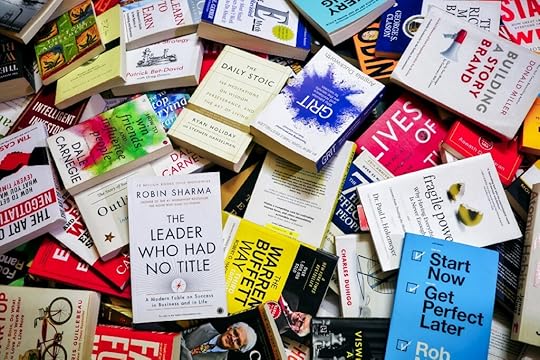 Photo by Shiromani Kant on Unsplash
Photo by Shiromani Kant on UnsplashDeveloping mental strength and resilience takes time and practice, and these books will guide you in the process.
a) 13 Things Mentally Strong People Don’t Do by Amy Marin
What is mental strength? How can we build and maintain mental strength? And what are the benefits of being mentally strong? Amy’s book will help us answer these questions and more.
b) The Things You Can See Only When You Slow Down by Haemin Sunim
“Is it the world that’s busy, or is it my mind?” This question is one of the book’s many thought-provoking questions and ideas. A friend recommended this book. And it made my list after listening to the first three chapters.
Three (3) Citations
 Photo by Randy Tarampi on Unsplash
Photo by Randy Tarampi on UnsplashThe following three quotes will help you build mental strength.
“Always be yourself and have faith in yourself. Do not go out and look for a successful personality and try to duplicate it.” — Bruce Lee
“The way to develop self-confidence is to do the thing you fear and get a record of successful experiences behind you.” — William Jennings Bryan
“If you hear a voice within you say ‘you cannot paint,’ then by all means paint, and that voice will be silenced.” — Vincent van Gogh
[image error]January 25, 2023
A Provocation Might be Moving You to Your Place of Provision
Your place of operation will determine the size of your provision
“So he did what the Lord had told him. He went to the Kerith Ravine, east of the Jordan, and stayed there.” — 1 Kings 17:5
 Photo by Singkham
Photo by SingkhamHave you ever considered how significant your environment is to you realising your potential and purpose?
For some time, I believed my skillset, heart-set, and mindset were more critical than my environment. A recent polarising story which pervaded the global sports media made me rethink that belief.
Lucrative, mammoth and eye-watering were some of the superlatives the media used to describe the biggest deal yet in football’s history. The story is of a player we consider one of the greatest artisans of the game. But put that debate aside for a second and reflect on these numbers.
US$ 200 million a year. US$ 548,000 a day. US$ 22,833 an hour.
These were the numbers (unverified) of Cristiano Ronaldo’s (CR7) latest Saudi Arabian deal, which got everyone in the sports world talking. On the one hand, opposing fans criticised it, while Ronaldo’s supporters celebrated the move. And the neutrals were likely divided.
Now, let me clear my throat. I am not a CR7 supporter or sympathiser. But I see a profound underlying lesson within the tale in his developing legacy.
Ronaldo and Manchester United (Man U) reunited to much hype and expectation in December 2021. The excitement of the Old Trafford faithfully was not unfounded, given Ronaldo’s 84 goals from 196 appearances yielding 12 domestic and international trophies between 2003–09.
The reunion was all honeymoon-esque until April 2022, when Man U hired a new manager. Then, a series of public displays of dissent due to limited playing time from CR7 unveiled the discord at Old Trafford. Then came CR7’s infamous Piers Morgan interview, rife with accusations. Followed by counter-accusations from the Man U high-ups, leading to Ronaldo’s eventual acrimonious departure.
“Provoked to purpose.” — T. D. Jakes
The prodigal son was in no man’s land, searching for a home to ply his trade at the ripe football age of 37. The rumour mill spun in full swing within weeks, revealing that CR7 is moving to the Kingdom of Saudi Arabia. The rejection and provocation at Manchester’s Old Trafford moved him to Riyadh’s Mrsool Park.
About 15,000 people attended, and millions watched on TV the magnificent and extravagant fanfare that welcomed Ronaldo and his family to Riyadh. It was a true celebration fitting a celebrity’s unveiling.
It almost seems ironic that CR7’s new club is Al-Nassr which means “victory” in Arabic.
“Go where you are celebrated, not tolerated.” — Anon
The critics claimed he moved for the money. They claim the KSA football league lacks the prestige for one of the game’s all-time greats to retire. The critics also pointed out that Ronaldo is not eating his words.
As a neutral, I believe he has the right to play anywhere he is truly happy, can give his best and fulfil his dream or live out his purpose.
While it is hard to argue against the financial motivation of all the parties to the deal, there is no doubt CR7 is in a happy place. He now plays with a grin as bright as the captain’s band on his left arm.
I hear you. With that amount of money, anyone can play with a big, bright smile. But that is only a tiny part of it. Trust me. I have been there. Not the money. I mean making a move to work where I am happy and valued.
I could glean the following eight insights from Ronaldo’s story that will help you find the right environment to thrive.
1) Be selective of your circle
You are not looking to be popular. You are looking to live out your purpose. You need people who will pray for you. Be there when you are down. And tell you what you need and not what you want to hear. People close to you will affect how you feel. So, be particular and deliberate on who has access to you; prune if you must. Just keep it close-knit.
2) Identify habits that are holding you back
I understand that CR7 engaged a psychologist to help him identify destructive trends, patterns and habits. And reevaluate his priorities, thus reeding harmful practices in the process. With regular introspection, I find habits I let go of that help me become more focused and productive.
3) Ditch the blame game
Not everything is someone’s fault. You don’t have to blame anyone or yourself. Permit yourself to fail sometimes, to be wrong. It is part of the growth process. Taking responsibility gives us power and control over our life. And avoiding the blame game helps to cultivate the positive mindset that breeds success.
4) Plan for the future, live in the present
Success does not happen by chance. It starts with planning. But, we should plan out of fear and apprehension that we forget to enjoy the present moment. Enjoy every moment, seize every opportunity and celebrate every small win. “Yesterday is history. Tomorrow is a mystery. Today is a gift. That’s why we call it ‘The Present’ — Eleanor Roosevelt
5) Pay attention to cues around you
Ignorance is not bliss, according to Jim Rohn. Read the room, and pay attention to the crucial information around you.
6) Choose your words wisely
Critics would argue that what Ronald said during the infamous Piers Morgan interview was the straw that broke the camel’s back. I am not in a position to judge what he said. But, the aftermath underscores the importance of choosing what to say and when to say it. Our words affect our environment as much as our environment affects us.
7) Do not compare yourself to others
“Comparison is the thief of joy.” — Theodore Roosevelt. We must embrace our unique gifts, qualities and weaknesses. The only person you should compare yourself to is who you were yesterday. The “you of today” should beat the “you of yesterday.”
8) Practice gratitude
Of the eight, I consider gratitude the most valuable. It is the currency that buys us future opportunities. But do not confuse being grateful for the small wins with instant gratification. Just enjoy the journey.
From my experience working in seven cities and two continents, I believe our environment influences us as much as we influence it. People close to us affect how we feel. Living in the present keeps us alive. We must learn to appreciate who we are and avoid the resentment of comparison.
And if we are grateful for what we have, we might be on our way to finding our “Al-Nassr.”
Two (2) Book recommendations
 Photo by Florencia Viadana on Unsplash
Photo by Florencia Viadana on UnsplashI believe the following two books will help you find your place of purpose and affect your environment.
a) 12 Rules for Life: An Antidote to Chaos by Jordan B. Peterson
Jordan B. Peterson is Cristiano Ronaldo’s psychologist. He is also polarising, but his 12 rules are worth reading. Unconventional rules would be an understatement. Rule 11: Do not bother children when they are skateboarding. How is that for a life rule?
b) The 7 Habits of Highly Effective People by Stephen R. Covey
I am recommending this book as a reminder as it needs no introduction. If you do not have this title, please get it yesterday: independence, interdependence and continuous improvement.
Be proactive — read the book. Again.
Three (3) Citations
 Photo by Elena Rabkina on Unsplash
Photo by Elena Rabkina on UnsplashThe following three quotes will help you build true grit.
“The greatest weakness of all weaknesses is to fear too much to appear weak.” — Jacques-Benigne Bossuet
“Only a man who knows what it is like to be defeated can reach down to the bottom of his soul and come up with the extra ounce of power it takes to win when the match is even.” — Muhammad Ali
“”It depends” is almost always the right answer in any big question.” — Linus Torvalds
[image error]
